Before I begin I want to say that this is my personal opinion & understanding of the aforementioned documents and can not be construed as having any sort of teaching authority as a Catholic (pre or post Vatican II) would understand those terms, except where I quote the document directly. I don’t have any specialized training in theology. That which is infered, implied and or otherwise drawn from those documents is my own. As one who was born just several years prior to the Vatican II council, I was provided a solid, which is to say in those days “standard” understanding of the church and it’s teachings.
In the post conciliar era, the education of individuals hasn’t been maintained at that level as it was in the 50’s & 60’s and the culture has decline in morals and with the internal church scandals both in liturgical areas and in a percentage of it’s immoral priests and bishops caused further doubt in what is true. This is no fault of those individuals receiving that education, the fault lies elsewhere. Many, many individual Catholics I have known over these past 30 years or so as an adult have suffered greatly by what is commonly called the “spirit of Vatican II”.
For those that are not Cradle Catholics or for that matter post Vatican II Cradle Catholics, it’s likely difficult understanding the frequency and degree of the unnecessary changes made the past 40 years. This is not to say that the 50’s & 60’s were ideal times as a Catholic, but one obtained assurance that what was taught to you was firmly held by those who taught it and witnessed it as the Truth. Confusion, doubt and dispair can come to mind for those with a poor or limited grasp of the material.
This article then is for you who were raised in this environment and who desire to try and wrap you hands around this topic. This is not to say that this article by any means is all that you will need on the topic, but it is hoped that it will point you in the correct direction.
I say that because there are numerous, too numerous in fact, web sites which claim a traditional Catholic bend, which will attempt to lead the individual in a direction which believes these documents are not a continuation of Catholic tradition but a rejection of it.
Given the track record of a significant (IMO) number of Catholic bishops world-wide who either failed to recognize the agenda of certain prelates, who in some cases acted in what they believed was good faith and others not, would appear to give these web site justification in making that claim. I am not qualified nor will I attempt to discern motives of either those web-sites or those Catholic prelates.
However it isn’t very difficult to see that which was permitted to take place within the church these past 40 years and how many, both inside and outside the church’s formal structure, could led one to believe that Unitatis Redintegratio is not a continuation, but a departure from the documents of both Pope Pius XI & Pope Leo XIII. In this respect I emphasize with those who have grave concerns about how the Ecumenical movement has historically been implemented in actual practice. I share those concerns and I added on the documents of the CONGREGATION FOR THE DOCTRINE OF THE FAITH which addresses many of these false applications of Unitatis Redintegratio during this time frame. The timing of these IMO came about way to late in the game for my liking, but we are after all called to suffer with Christ.
I selected a blog Rorate Caeli,which I otherwise favor on other subjects as the example of what I would describe as a typical concerned, objection or rejection of this Vatican II Council document in the traditional corner and of course representative of schismatic traditional groups as well.
With all that said, due simply to the body of work involved you will need to grasp your favorite choice of beverage and snack, advise your spouse you will be busy wasting time on the computer again. Hopefully in this case it’s a good thing.
The primary source documents are:
Satis Cognitum-ON THE UNITY OF THE CHURCH
ENCYCLICAL OF POPE LEO XIII – June, 1896
MORTALIUM ANIMOS-ON RELIGIOUS UNITY
ENCYCLICAL OF POPE PIUS XI-Jan. 6, 1928
Mystici Corporis-ON THE MISTICAL BODY OF CHRIST
ENCYCLICAL OF POPE PIUS XII – June 1943
ECCLESIAM SUAM -ON THE CHURCH
ENCYCLICAL OF POPE PAUL VI- August, 1964
UNITATIS REDINTEGRATIO(Decree on Ecumenism)
Second Vatican Council -November 1964
Ut Unum Sint – On commitment to Ecumenism
ENCYCLICAL OF POPE John Paul II- May, 1995
Dominus Jesus- ON THE UNICITY AND SALVIFIC UNIVERSALITY
OF JESUS CHRIST AND THE CHURCH
CONGREGATION FOR THE DOCTRINE OF THE FAITH Joseph Card. Ratzinger confirmed by Pope John Paul II- August, 2000
RESPONSES TO SOME QUESTIONS REGARDING CERTAIN ASPECTS
OF THE DOCTRINE ON THE CHURCH CONGREGATION FOR THE DOCTRINE OF THE FAITH William Cardinal Levada confirmed by Pope Benedict XVI – June, 2007
Those quotes bolded and or underlined is by me for emphasis.
Pre- Vatican II Popes Leo XIII, Pope Pius XI , & Pope Pius XII
Pope Leo XIII
(SC) (9) para. [2]…St. Augustine notes that other heresies may spring up, to a single one of which, should any one give his assent, he is by the very fact cut off from Catholic unity. “No one who merely disbelieves in all (these heresies) can for that reason regard himself as a Catholic or call himself one. For there may be or may arise some other heresies, which are not set out in this work of ours, and, if any one holds to one single one of these he is not a Catholic” (S. Augustinus, De Haeresibus, n. 88)…..9. para.[5]…If then it be certain that anything is revealed by God, and this is not believed, then nothing whatever is believed by divine Faith: for what the Apostle St. James judges to be the effect of a moral delinquency, the same is to be said of an erroneous opinion in the matter of faith. “Whosoever shall offend in one point, is become guilty of all” (Ep. James ii., 10). Nay, it applies with greater force to an erroneous opinion. For it can be said with less truth that every law is violated by one who commits a single sin, since it may be that he only virtually despises the majesty of God the Legislator. But he who dissents even in one point from divinely revealed truth absolutely rejects all faith, since he thereby refuses to honour God as the supreme truth and theformal motive of faith.“In many things they are with me, in a few things not with me; but in those few things in which they are not with me the many things in which they are will not profit them” (S. Augustinus in Psal. liv., n. 19). And this indeed most deservedly; for they, who take from Christian doctrine what they please, lean on their own judgments, not on faith; and not “bringing into captivity every understanding unto the obedience of Christ” (2 Cor. x., 5), they more truly obey themselves than God. “You, who believe what you like, believe yourselves rather than the gospel”(S. Augustinus, lib. xvii., Contra Faustum Manichaeum, cap. 3).
13.para.[4]…In the formula of Catholic faith drawn up and proposed by Hormisdas, which was subscribed at the beginning of the sixth century in the great Eighth Council by the Emperor Justinian, by Epiphanius, John and Menna, the Patriarchs, this same is declared with great weight and solemnity. “For the pronouncement of Our Lord Jesus Christ saying: ‘Thou art Peter, and upon this rock I will build my Church,’ &c., cannot be passed over. What is said is proved by the result, because Catholic faith has always been preserved without stain in the Apostolic See”(Post Epistolam, xxvi., ad omnes Episc. Hispan., n. 4). We have no wish to quote every available declaration; but it is well to recall the formula of faith which Michael Paleologus professed in the Second Council of Lyons: “The same holy Roman Church possesses the sovereign and plenary primacy and authority over the whole Catholic Church, which, truly and humbly, it acknowledges to have received together with the plenitude of power from the Lord Himself, in the person of St. Peter, the Prince or Head of the Apostles, of whom the Roman Pontiff is the successor. And as it is bound to defend the truth of faith beyond all others, so also if any question should arise concerning the faith it must be determined by its judgment” (Actin iv.).[Emphasis mine]
14. para. [2]….”The safety of the Church depends on the dignity of the chief priest, to whom if an extraordinary and supreme power is not given, there are as many schisms to be expected in the Church as there are priests” (S. Hieronymus, Dialog, contra Luciferianos, n. 9). It is necessary, therefore, to bear this in mind, viz., that nothing was conferred on the apostles apart from Peter, but that several things were conferred upon Peter apart from the Apostles. St. John Chrysostom in explaining the words of Christ asks: “Why, passing over the others, does He speak to Peter about these things?” And he replies unhesitatingly and at once, “Because he was pre-eminent among the Apostles, the mouthpiece of the Disciples, and the head of the college” (Hom. lxxxviii. in Joan., n. I). He alone was designated as the foundation of the Church. To him He gave the power of binding and loosing; to him alone was given the power of feeding. On the other hand, whatever authority and office the Apostles received, they received in conjunction with Peter. “If the divine benignity willed anything to be in common between him and the other princes, whatever He did not deny to the others He gave only through him. So that whereas Peter alone received many things, He conferred nothing on any of the rest without Peter participating in it” (S. Leo M. sermo iv., cap. 2).
Pope Pius XI
(MA) 2….For which reason conventions, meetings and addresses are frequently arranged by these persons, at which a large number of listeners are present, and at which all without distinction are invited to join in the discussion, both infidels of every kind, and Christians, even those who have unhappily fallen away from Christ or who with obstinacy and pertinacity deny His divine nature and mission. Certainly such attempts can nowise be approved by Catholics, founded as they are on that false opinion which considers all religions to be more or less good and praiseworthy, since they all in different ways manifest and signify that sense which is inborn in us all, and by which we are led to God and to the obedient acknowledgment of His rule.
8. This being so, it is clear that the Apostolic See cannot on any terms take part in their assemblies, nor is it anyway lawful for Catholics either to support or to work for such enterprises; for if they do so they will be giving countenance to a false Christianity, quite alien to the one Church of Christ.
9. These pan-Christians who turn their minds to uniting the churches seem, indeed, to pursue the noblest of ideas in promoting charity among all Christians: nevertheless how does it happen that this charity tends to injure faith?…How so great a variety of opinions can make the way clear to effect the unity of the Church We know not; that unity can only arise from one teaching authority, one law of belief and one faith of Christians. But We do know that from this it is an easy step to the neglect of religion orindifferentism and to modernism, as they call it. Those, who are unhappily infected with these errors, hold that dogmatic truth is not absolute but relative, that is, it agrees with the varying necessities of time and place and with the varying tendencies of the mind, since it is not contained in immutable revelation, but is capable of being accommodated to human life.
10. So, Venerable Brethren, it is clear why this Apostolic See has never allowed its subjects to take part in the assemblies of non-Catholics: for the union of Christians can only be promoted by promoting the return to the one true Church of Christ of those who are separated from it, for in the past they have unhappily left it. To the one true Church of Christ, we say, which is visible to all, and which is to remain, according to the will of its Author, exactly the same as He instituted it.
14. That the Church is a body is frequently asserted in the Sacred Scriptures. “Christ,” says the Apostle, “is the Head of the Body of the Church.”[13] If the Church is a body, it must be an unbroken unity, according to those words of Paul: “Though many we are one body in Christ.”[14] But it is not enough that the Body of the Church should be an unbroken unity; it must also be something definite and perceptible to the senses as Our predecessor of happy memory, Leo XIII, in his Encyclical Satis Cognitum asserts: “the Church is visible because she is a body.[15] Hence they err in a matter of divine truth, who imagine the Church to be invisible, intangible, a something merely “pneumatological” as they say, by which many Christian communities, though they differ from each other in their profession of faith, are untied by an invisible bond.
23….For not every sin, however grave it may be, is such as of its own nature to sever a man from the Body of the Church, as does schism or heresy or apostasy.
Pope Pius XII
(MC)103…Imploring the prayers of the whole Church We wish to repeat this solemn declaration in this Encyclical Letter in which We have proclaimed the praises of the “great and glorious Body of Christ” and from a heart overflowing with love We ask each and every one of them to correspond to the interior movements of grace, and to seek to withdraw from that state in which they cannot be sure of their salvation.For even though by an unconscious desire and longing they have a certain relationship with the Mystical Body of the Redeemer, they still remain deprived of those many heavenly gifts and helps which can only be enjoyed in the Catholic Church.
One can see from reading Pope Leo that any diverging for the teachings of the Catholic church means one is outside the formal structure of the church. Drawing on St. Augustine even if one has agreement on many points, if you disagree on a few you are not in the church. He goes on in paragraphs 13 & 14 that unity depends on the papacy. Pope Pius XI in a concise document (unlike Pope John Paul II;>) states that indifferentism, modernism and relativism are to be avoided; paragraphs 2,8-10. This will be an important point that needed to be addressed in the later documents of the CDF.
Pope Pius XII states that there is a relationship between those not in union with the Catholic church but are with the Mystical Body of Christ.
All three documents are direct and at least the first two relatively concise.
Council and post Council documents:
If one reads Pope Paul VI, Vatican II -Unitatis Redintegratio, & Ut Unum Sint by Pope John Paul II there is a discernable difference in tone and openness to the failures of the human aspect of the church institution, not found in the pre-council documents and a clear plea for dialog with other churches and communions. One must recall that Pope Paul VI lifted the anathemas of 1054 as did Patriarch Athenagoras of Constantinople on December 7,1965. The question arises does the lifting of the anathema from the Catholic side mean that the Orthodox church while not in full communion is no longer in schism?
The emphasis on the post council documents are about dialog, pray and acknowledgement that the Holy Spirit works in and through individual Christians outside the formal boundaries of the Catholic church, but that these efficacy is by the same Catholic church. Corporate bodies are defined as communities, not particular churches.
Pope Paul VI on
Popes Leo XIII and Pius XII on the Church
(ES) 30. There are, however, two documents which deserve special mention: the encyclical Satis cognitum of Pope Leo XIII, published in 1896, and the encyclical Mystici corporis of Pope Pius XII, published in 1943. These documents offer us ample and clear teaching concerning the subject of Our present discourse: that divine institution through which Christ continues His redemptive work in the world.
46. First We must lay down a few rules to guide us in the work of reform. Obviously, there can be no question of reforming the essential nature of the Church or its basic and necessary structure. To use the word reform in that context would be to misuse it completely. We cannot brand the holy and beloved Church of God with the mark of infidelity.
109. We readily accept the principle of stressing what we all have in common rather than what divides us. This provides a good and fruitful basis for our dialogue, and we are prepared to engage upon it with a will. We would even go further and declare our readiness to examine how we can meet the legitimate desires of our separated Christian brothers on many points of difference concerning tradition, spirituality, canon law, and worship, for it is Our dearest wish to embrace them in a perfect union of faith and charity.
We must stress however that it is not in Our power to make any concessions regarding the integrity of the faith and the obligations of charity. We realize that this may cause misgiving and opposition in certain quarters, but now that the Catholic Church has on its own initiative taken steps to restore the unity of Christ’s fold, it will not cease to exercise the greatest prudence and deliberation. It will continue to insist that the claims it makes for itself-claims which still have the effect of alienating the separated brethren-derive from the will of Christ, not from any spirit of self-aggrandizement based on the record of its past achievements, nor from any unsound theological speculation. Rightly understood, they will be seen to be for the good of all, for the common unity, liberty and fullness of the Christian life. The Catholic Church will never cease to prepare itself by prayer and penance for the longed-for reconciliation.
110. Are there not those who say that unity between the separated Churches and the Catholic Church would be more easily achieved if the primacy of the Roman pontiff were done away with? We beg our separated brothers to consider the groundlessness of this opinion. Take away the sovereign Pontiff and the Catholic Church would no longer be catholic. Moreover, without the supreme, effective, and authoritative pastoral office of Peter the unity of Christ’s Church would collapse. It would be vain to look for other principles of unity in place of the true one established by Christ Himself. As St. Jerome rightly observed: “There would be as many schisms in the Church as there are priests.”
And Primacy of Service and Love
We would add that this cardinal principle of holy Church is not a supremacy of spiritual pride and a desire to dominate mankind, but a primacy of service, ministration, and love. It is no vapid rhetoric which confers on Christ’s vicar the title: “Servant of the servants of God.”
Vatican II
(UR) 3…The children who are born into these Communities and who grow up believing in Christ cannot be accused of the sin involved in the separation, and the Catholic Church embraces upon them as brothers, with respect and affection. For men who believe in Christ and have been truly baptized are in communion with the Catholic Church even though this communion is imperfect. The differences that exist in varying degrees between them and the Catholic Church-whether in doctrine and sometimes in discipline, or concerning the structure of the Church-do indeed create many obstacles, sometimes serious ones, to full ecclesiastical communion. The ecumenical movement is striving to overcome these obstacles. But even in spite of them it remains true that all who have been justified by faith in Baptism are members of Christ’s body,(21)refers to Council of Florence Session VIIIand have a right to be called Christian, and so are correctly accepted as brothers by the children of the Catholic Church.(22)refers to S. AUGUSTINUS, In Ps. 32, Enarr. 11, 29: PL 36, 299
3.[con’t]….It follows that the separated Churches(23) and Communities as such, though we believe them to be deficient in some respects, have been by no means deprived of significance and importance in the mystery of salvation. For the Spirit of Christ has not refrained from using them as means of salvation which derive their efficacy from the very fullness of grace and truth entrusted to the Church.
Nevertheless, our separated brethren, whether considered as individuals or as Communities and Churches, are not blessed with that unity which Jesus Christ wished to bestow on all those who through Him were born again into one body, and with Him quickened to newness of life-that unity which the Holy Scriptures and the ancient Tradition of the Church proclaim. For it is only through Christ’s Catholic Church, which is “the all-embracing means of salvation,” that they can benefit fully from the means of salvation. We believe that Our Lord entrusted all the blessings of the New Covenant to the apostolic college alone, of which Peter is the head, in order to establish the one Body of Christ on earth to which all should be fully incorporated who belong in any way to the people of God.
Reference #23. Cf. CONC. LATERANENSE IV (1215) Constitutio IV: Mansi 22, 990; CONC. LUGDUNENSE II (1274), Professio fidei Michaelis Palaeologi: Mansi 24, 71 E; CONC. FLORENTINUM, Sess. VI (1439), Definitio Laetentur caeli: Mansi 31, 1026 E.
4….The term “ecumenical movement” indicates the initiatives and activities planned and undertaken, according to the various needs of the Church and as opportunities offer, to promote Christian unity. These are: first, every effort to avoid expressions, judgments and actions which do not represent the condition of our separated brethren with truth and fairness and so make mutual relations with them more difficult; then, “dialogue” between competent experts from different Churches and Communities. At these meetings, which are organized in a religious spirit, each explains the teaching of his Communion in greater depth and brings out clearly its distinctive features. In such dialogue, everyone gains a truer knowledge and more just appreciation of the teaching and religious life of both Communions. In addition, the way is prepared for cooperation between them in the duties for the common good of humanity which are demanded by every Christian conscience; and, wherever this is allowed, there is prayer in common…..the divisions among Christians prevent the Church from attaining the fullness of catholicity proper to her, in those of her sons who, though attached to her by Baptism, are yet separated from full communion with her. Furthermore, the Church herself finds it more difficult to express in actual life her full catholicity in all her bearings.
24…the divisions among Christians prevent the Church from attaining the fullness of catholicity proper to her, in those of her sons who, though attached to her by Baptism, are yet separated from full communion with her. Furthermore, the Church herself finds it more difficult to express in actual life her full catholicity in all her bearings.This Sacred Council exhorts the faithful to refrain from superficiality and imprudent zeal, which can hinder real progress toward unity. Their ecumenical action must be fully and sincerely Catholic, that is to say, faithful to the truth which we have received from the apostles and Fathers of the Church, in harmony with the faith which the Catholic Church has always professed, and at the same time directed toward that fullness to which Our Lord wills His Body to grow in the course of time.
Pope John Paul II
(UUS) 10 …The Council states that the Church of Christ “subsists in the Catholic Church, which is governed by the Successor of Peter and by the Bishops in communion with him“, and at the same time acknowledges that “many elements of sanctification and of truth can be found outside her visible structure. These elements, however, as gifts properly belonging to the Church of Christ, possess an inner dynamism towards Catholic unity”.
“It follows that these separated Churches and Communities, though we believe that they suffer from defects, have by no means been deprived of significance and value in the mystery of salvation. For the Spirit of Christ has not refrained from using them as means of salvation which derive their efficacy from the very fullness of grace and truth entrusted to the Catholic Church“.
11. The Catholic Church thus affirms that during the two thousand years of her history she has been preserved in unity, with all the means with which God wishes to endow his Church, and this despite the often grave crises which have shaken her, the infidelity of some of her ministers, and the faults into which her members daily fall.
38…As far as the formulation of revealed truths is concerned, the Declaration Mysterium Ecclesiaestates: “Even though the truths which the Church intends to teach through her dogmatic formulas are distinct from the changeable conceptions of a given epoch and can be expressed without them, nevertheless it can sometimes happen that these truths may be enunciated by the Sacred Magisterium in terms that bear traces of such conceptions. In view of this, it must be stated that the dogmatic formulasof the Church’s Magisterium were from the very beginning suitable for communicating revealed truth, and that as they are they remain for ever suitable for communicating this truth to those who interpret them correctly”.
Ok so what’s the beef and what happened?
The recovery begins-
J.Cardinal Ratzinger
Dominus Iesus:
4. The Church’s constant missionary proclamation is endangered today by relativistic theories which seek to justify religious pluralism, not only de facto but also de iure (or in principle).[ Exactly what Pope Pius XI warned against.]As a consequence, it is held that certain truths have been superseded; for example, the definitive and complete character of the revelation of Jesus Christ, [denial of which is heresy] the nature of Christian faith as compared with that of belief in other religions,[ditto] the inspired nature of the books of Sacred Scripture,[ditto]the personal unity between the Eternal Word and Jesus of Nazareth,[ditto] the unity of the economy of the Incarnate Word and the Holy Spirit, [ditto]the unicity and salvific universality of the mystery of Jesus Christ, the universal salvific mediation of the Church, the inseparability — while recognizing the distinction — of the kingdom of God, the kingdom of Christ, and the Church, and the subsistence of the one Church of Christ in the Catholic Church.
You get the idea
The roots of these problems are to be found in certain presuppositions of both a philosophical and theological nature, which hinder the understanding and acceptance of the revealed truth. Some of these can be mentioned: the conviction of the elusiveness and inexpressibility of divine truth, even by Christian revelation; relativistic attitudes toward truth itself, according to which what is true for some would not be true for others; the radical opposition posited between the logical mentality of the West and the symbolic mentality of the East; the subjectivism which, by regarding reason as the only source of knowledge, becomes incapable of raising its “gaze to the heights, not daring to rise to the truth of being”; the difficulty in understanding and accepting the presence of definitive and eschatological events in history; the metaphysical emptying of the historical incarnation of the Eternal Logos, reduced to a mere appearing of God in history; the eclecticism of those who, in theological research, uncritically absorb ideas from a variety of philosophical and theological contexts without regard for consistency, systematic connection, or compatibility with Christian truth; finally, the tendency to read and to interpret Sacred Scripture outside the Tradition and Magisterium of the Church.On the basis of such presuppositions, which may evince different nuances, certain theological proposals are developed — at times presented as assertions, and at times as hypotheses — in which Christian revelation and the mystery of Jesus Christ and the Church lose their character of absolute truth and salvific universality, or at least shadows of doubt and uncertainty are cast upon them.
Hence the traditionalist valid concerns with the validity of Vatican II is actually caused by those who implemended the council in ways not only not intended, but in ways counter to them.
6. Therefore, the theory of the limited, incomplete, or imperfect character of the revelation of Jesus Christ, which would be complementary to that found in other religions, is contrary to the Church’s faith….Such a position is in radical contradiction with the foregoing statements of Catholic faith according to which the full and complete revelation of the salvific mystery of God is given in Jesus Christ.Thus, theological faith (the acceptance of the truth revealed by the One and Triune God) is often identified with belief in other religions, which is religious experience still in search of the absolute truth and still lacking assent to God who reveals himself. This is one of the reasons why the differences between Christianity and the other religions tend to be reduced at times to the point of disappearance.
17… the ecclesial communities which have not preserved the valid Episcopate and the genuine and integral substance of the Eucharistic mystery, are not Churches in the proper sense; however, those who are baptized in these communities are, by Baptism, incorporated in Christ and thus are in a certain communion, albeit imperfect, with the Church.
The Christian faithful are therefore not permitted to imagine that the Church of Christ is nothing more than a collection — divided, yet in some way one — of Churches and ecclesial communities; nor are they free to hold that today the Church of Christ nowhere really exists, and must be considered only as a goal which all Churches and ecclesial communities must strive to reach”. In fact, “the elements of this already-given Church exist, joined together in their fullness in the Catholic Church and, without this fullness, in the other communities
Donimus Iesus isn’t quite as blunt as the pre-council popes letters, but it IMO strikes an excellent balance that appears harsh to the spirit of vatican II crowd and to some of our separated brothers. But it was and is needed to combat the relativism that creeped into the church particularly with her theologians.
In number 8 of the Dogmatic Constitution Lumen gentium‘subsistence’ means this perduring, historical continuity and the permanence of all the elements instituted by Christ in the Catholic Church, in which the Church of Christ is concretely found on this earth.
It is possible, according to Catholic doctrine, to affirm correctly that the Church of Christ is present and operative in the churches and ecclesial Communities not yet fully in communion with the Catholic Church, on account of the elements of sanctification and truth that are present in them. Nevertheless, the word “subsists” can only be attributed to the Catholic Church alone precisely because it refers to the mark of unity that we profess in the symbols of the faith (I believe… in the “one” Church); and this “one” Church subsists in the Catholic Church
“It is through the celebration of the Eucharist of the Lord in each of these Churches that the Church of God is built up and grows in stature”.However, since communion with the Catholic Church, the visible head of which is the Bishop of Rome and the Successor of Peter, is not some external complement to a particular Church but rather one of its internal constitutive principles, these venerable Christian communities lack something in their condition as particular churches.
In summary then Vatican II council and the post conciliar popes have been and continue to be faithful to the pre-Vatican II popes and the ancient Tradition of the Catholic church. It can be said in all frankness that the response times were like the liturgy responses rather late in the damage control area. This however is not the fault of the councils documents, but of the individuals who chose to be as Pope Puis XI termed “pan-christian” which is to say false christians.
1st draft, on the 80th anniversary of Pope Pius XI Mortalium Animos.
Read Full Post »
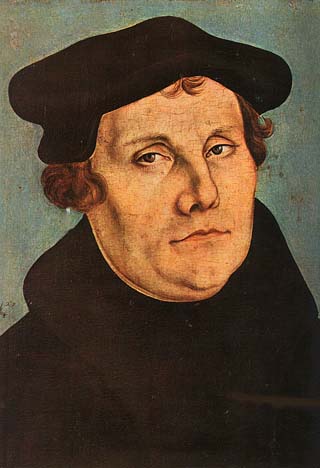

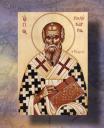







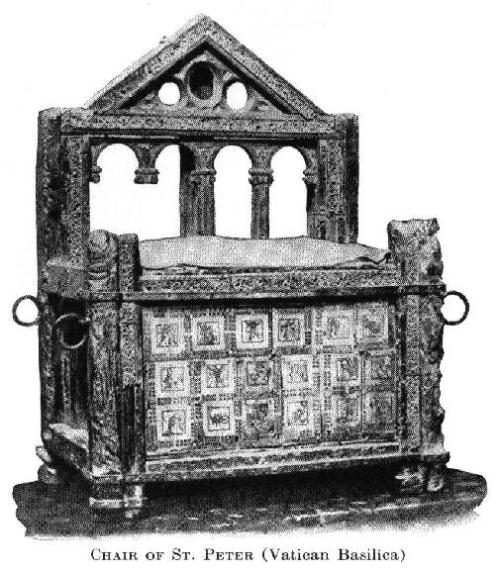
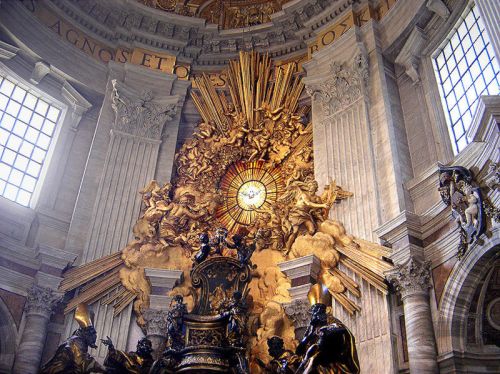
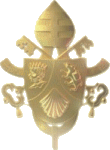

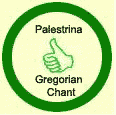










 Site supports Most Reverend Jose H. Gomez
Site supports Most Reverend Jose H. Gomez
 Bishop Kevin W. Vann
Bishop Kevin W. Vann
You must be logged in to post a comment.